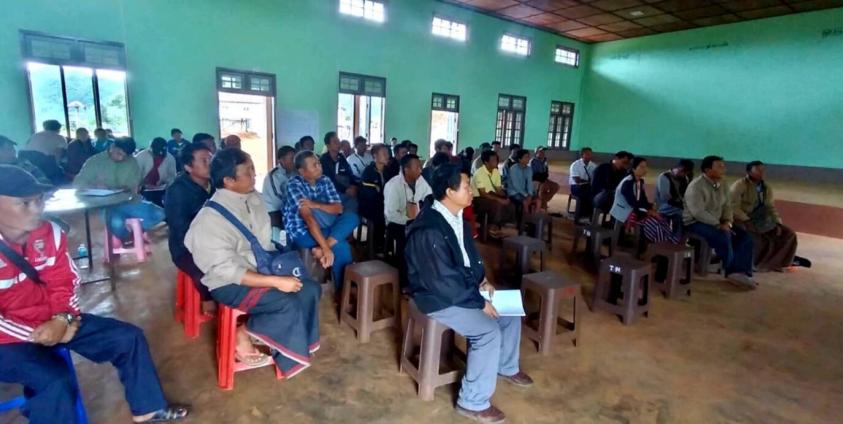A meeting was held to discuss ways to help farmers facing difficulties earning their livelihoods in Pekon Township in southern Shan State and Demoso Township across the border in Karenni State.
Around 60 farmers attended the 12 August 2024 meeting which was held in Pekon Townsip and organised by the Karen Relief Committee (KRC).
A KRC official said: “We need to gain a comprehensive understanding of the challenges faced by the farmers. We aim to create strategies to offer the most effective advice and support. Once we have a clear picture of their difficulties, we will communicate this to the relevant organisations and stakeholders. Our objective is to ensure that the aid provided to the farmers is both effective and meaningful.”
KRC said that the discussions and outcomes of the meetings will be presented to the relevant organisations and stakeholders.
A farmer said: “Rice farming is our main occupation, but the ongoing conflicts in the region have severely disrupted our usual practices. We cannot plant rice as we normally would due to the fighting, and military activity has prevented us from harvesting our crops, resulting in significant damage."
The situation for farmers is worst in MongPai (a.k.a Moebye) Village Tract at the southern end of the Moebye Reservoir. Because the reservoir dam has been breached most of the rice fields in MongPai Village Tract have been flooded for about the last two years. A farmer from MongPai said that their struggles and financial burdens have also been made worse by the rising costs of agricultural inputs such as fertilizer and labour.
He said: “We have lost about one-third of our cultivated land due to flooding. Consequently, the rice yield from our upcoming harvest is expected to be significantly lower than usual. For example, if we typically harvested three tins (86.4 kg) of rice, this year we might only get two tins (57.6 kg) or even one and a half tins (43.2 kg). This has caused significant hardship for farmers. Additionally, during the planting season, the costs of fertilizers, diesel, and labour have doubled compared to previous years.”







